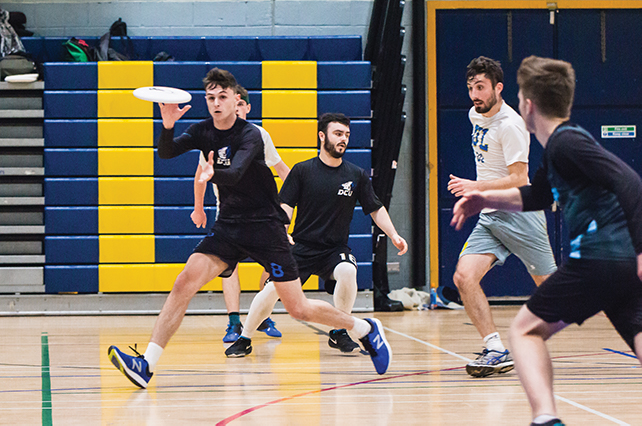
The University experience for Irish women has progressed drastically over the past century.
Isabel Marion Weir Johnston, the first woman to register to study at Trinity, was not allowed to attend lectures and she was only permitted to sit exams. For decades women were not allowed to join all-male societies, had to dine separately from men and were subject to curfews.
Thankfully, our third level system has transformed and now recognizes women as completely equal to their male peers. This has resulted in balanced and diverse student unions, which proportionately represent women much more than our national political systems do.
DCU Students’ Union (DCUSU) Vice President (VP) for Education and Placement Chloe McMorrow noted the difference between female representation in university politics, and at national level.
“There is a much higher rate of female engagement in politics at third level and in youth politics, as a teenager I was on comhairle na nÓg MhaighEo and well over half of our members were women,” said McMorrow.
“The current level of female representation in politics has taken time. The translation won’t happen overnight unfortunately, but I think as more young people in Ireland grow up seeing women in politics as the norm and young women consider it as a career choice- we will see more equal representation,” she said.
Róisín Nic Lochlainn, NUI Galway SU (NUIGSU) VP for Welfare and Equality, explained that while she hopes trends seen in student politics will translate to national level, she wants this to happen in a way that prioritises problems facing women.
“While we need that gender balance we need politicians who will put women’s issues at the forefront. We’ve seen in this country how much the women of Ireland have been left behind, with the report on the mother and baby homes and the image abuse scandal as well. There’s still a lot of work to be done. I think there is more of a stigma around women still,” she said.
Beth O’Reilly, University College Cork SU (UCCSU) Commercial and Fundraising officer, applauds the university political system for being diverse.
“I do think that getting involved in Students’ Union work has given so many women the confidence to get involved in national political movements, and that is amazing.
“However, the culture in a university is very different to the culture in national politics, and there are still huge strides to make in terms of breaking down the misogynistic barriers that have kept women sidelined for so long – particularly now with the rise of online misogynistic abuse directed at women in politics,” she said.
Barriers facing women in university politics
In relation to barriers facing women running for positions at student level, O’Reilly believes there is still work to be done.
“While we are definitely on the right track, I think that in UCC some work still needs to be done to uplift women during our SU elections. In particular the role of President – we had our last female president in 2003/2004 and have had a whopping total of four female presidents of the union in the forty six years since the union was chartered.
“In my time in college however, we have seen a huge surge in the number of women putting themselves forward for the role of president, which is definitely a great start for a more gender balanced union,” she said.
Nic Lochlainn expressed issues with being taken seriously in student politics.
“On university level committees I feel like sometimes my word isn’t taken as strongly as others. The SU President here is a man, Pádraic does great work don’t get me wrong, he’s always representing student voices on the committees, but sometimes I feel like I say something, and it gets abandoned or I’m told that I’m wrong, but then Pádraic says the exact same thing as me and it is acknowledged and supported.
“Aside from that, and those minimal things, it’s pretty much an equal playing field now in student union elections anyway,” she said.
Reasons for being involved
Nic Lochlainn has been an activist since she was a teenager and she was inspired to run by seeing how poorly students were being treated. “I just feel like we’re ignored and the pandemic has highlighted that massively here,” she said.
“I kind of saw the Student Union sometimes and they have an image of being a bit liberal, or a bit moderate, I felt like I could change that and I wanted to change that because there’s so much potential in the student union and so much potential in what we can do, because were angry and there’s so many of us. The students are the future of the island,” Nic Lochlainn said.
O’Reilly says that she ran for the student union to improve the college experience for others.
“I didn’t have the greatest college experience, and so for me, running for the SU was a way that I could help to be a part of making changes to make the university a better place for current students and try to make the changes that would have made my college experience more enjoyable.
“I absolutely love being able to support and uplift students, and to represent a strong student voice is honestly an honour,” she said.
McMorrow had similar reasons for entering student politics.
“I was inspired to run for the SU as I had some ideas on how to improve the student experience in DCU, they were small things but I felt were all very achievable and would make a big difference to the students in younger years.
“To be honest I wasn’t very involved throughout my years in DCU but had a genuine interest in representing the union. I was drawn to the nature of the work, helping students day to day and felt that it was something I might be good at,” she said.
However, McMorrow says her venture into politics will likely end at university level. “I’m really not sure what I will do next, at the moment I don’t see myself getting involved in politics after the SU.”
For O’Reilly, further work in politics isn’t being ruled out. “Coming from a politics degree, I would definitely say that I have an interest in politics beyond university level, but I honestly have no idea which route I would go down, still figuring that part out.”
For Nic Lochlainn, activism is something she sees in her future. “I want to be involved in politics but not electoral politics. I want to go into trade unionism and work in NGO’s,”
“I don’t think I’d run for election on national level, I don’t think that’s for me,” Nic Lochlainn said.
Emma Nevin
Image credit: Sonja Tutty



